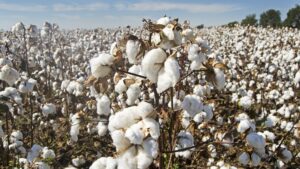A great phrase, coined by Shirley Chisholm, the United States’ first African-American congresswoman. The folding chair strategy worked for Shirley as she ended up being the first African American woman to make a bid for the Democratic Party nominee of president of the United States in 1972.
History aside, I was reminded recently that the seed sector needs to invest in folding chairs still. I was attending a global cotton conference organized in Europe, where participants and speakers over the three days represented the cotton value chain from crop to cloth. Retailers, ginners, spinners, traders and farmers were all present. Nobody, however, had thought to invite the suppliers of the most essential part, the seed! Without a seed, how are you going to get a crop, let alone create cloth? It is very honorable and motivating to discuss how to make the cotton value chain more sustainable; however, the more cotton seed is enhanced for stable yield and excellent fiber quality, the better you can target agronomic solutions later in the field. In the cotton industry, the value of sustainable cotton appears to start with the farmer. In the seed sector, the value of sustainable cotton starts with the Breeder. “Mind The Gap” as we say in London!
[tweetshare tweet=”The seed sector needs a seat at the table in value chain discussions for fiber and food to help stakeholders realize there is value capture and sustainability potential that starts with the seed” username=”EuropeanSeed”]
Why is it that the retailers of this world, both in fiber and in food, often ignore the beginning of the value chain and don’t invite agricultural or seed companies to the table? Is it because seeds and ag inputs are considered “raw materials”? Is the value capture that plant breeding can give seeds unknown, or is it a desire not to be “tainted” by association with seed or ag companies?
It is ironic that big ag companies have the desire, the resources and expertise to do so much for sustainable agriculture yet so many NGOs or associations fear “perception contamination” and are reluctant to partner. Quite often the issue of company lobbying is challenged, yet when you look at the lobbying landscape there is quite an imbalance; ag companies often have a small dedicated team in Brussels and in Washington, whereas global NGOs have the complete work force lobbying worldwide, gaining the green halo effect and powerful media presence for their efforts! We should remind ourselves that the origin of lobbying – whether company or NGO – should be to inform the politicians of the facts. And, it is the legislator after all who takes the decision based on these facts. Many ag companies invest at least 10% of revenue in innovation and research – especially the big companies. If we don’t put the bar high for future quality and sustainable agriculture, then who will? A global network of organic online retail? Your local organic supermarket?
Michael E. Porter first gave his analysis of value chains as far back as 1985 to show how companies could achieve a competitive advantage. We need to remind powerful fashion retailers and food companies that the value chain is from Seed to Shirt and from Seed to Shelf is important. Otherwise the competitive advantage for EU agriculture will be lost and those innovative milestones with regard to high tech seeds and more efficient ag inputs that we can achieve with the latest plant breeding methods could be bygones.
A good example is the high level EU discussions at the Food 2030 event organized by the Bioeconomy Directorate of Research and Innovation. Seeing as the seedsector is under the governance of the Directorate-General for Health and Food Safety, not even part of the DG for Agriculture, it would be logical not to expect an invitation to the table, even if the EU are discussing food.
In 2016 the European Seed Association offered an innovative plant breeding information stand in the food village and was accepted. Two years later ESA gets invited back, and the partnership value was clearly apparent by being the only stand with real innovative vegetables to try. This year many more start-ups had innovative bites to sample including insect protein and 3D printed food, so it was great to be part of this dynamic and innovative discussion. Our presence enabled us again to remind EU politicians that the food chain starts with the seed and how the latest plant breeding methods are vital for an innovative food system. The more creative and responsive the seed is to agricultural issues, the more the value chain is kick-started into sustainability.
So how about inviting stakeholders from the beginning of the food and fiber value chain, for more rounded all-inclusive discussions? Otherwise we will have to invest in folding chairs for the seed sector and brand them Shirley®!
Editor’s Note: Suzanne Barratt is Chair of the Communications working group, European Seed Association and a Communication Manager at Bayer for the EMEA Seed Business, to be divested to BASF August 2018.












